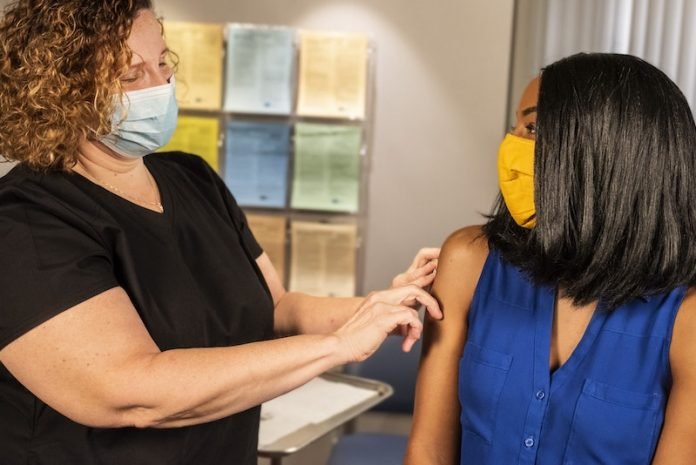
Scientists from Indiana University found that misinformation posted online about the COVID-19 vaccine was associated with hesitancy toward inoculation and lower vaccination rates in some geographical areas of the United States.
The research is published in Nature Scientific Reports and was conducted by John Bryden et al.
The researchers studied the link between misinformation, behaviors and health outcomes, specifically the way COVID-19 vaccination rates and vaccine hesitancy correlate with levels of misinformation online.
They considered the question of how misinformation affects vaccination behavior after seeing a lot of misinformation posted online during the vaccine rollout and wondering why some states were lagging behind others in vaccination rates.
The team explored the link between misinformation on Twitter and attitudes about COVID-19 vaccines.
They collected data from Twitter from Jan. 4 to March 25, 2021. The timeline was chosen because once the vaccine became available to everyone, the issue was no longer supply but demand.
Examples of misinformation about the COVID-19 vaccine have included claims that they genetically manipulate the population, or contain microchips that interact with 5G networks.
Misinformation was identified by considering tweets that contained links to articles from a list of low-credibility sources, as compiled by a politically neutral third party.
The researchers also collected vaccine hesitancy results from surveys posted on Facebook, and obtained state- and county-level vaccination rates from the Centers for Disease Control and Prevention.
More than 22 million individual responses to daily surveys on Facebook in February and March 2021 found high levels of vaccine hesitancy, with about 40 to 47 percent of American adults hesitant to take the COVID-19 vaccine.
The research found that political partisanship was strongly linked to lower vaccination rates, notably in conservative regions.
Republican-majority states and counties showed higher levels of misinformation, greater vaccine hesitancy and lower vaccination rates.
Ethnicity also had a big impact on hesitancy, with Black Americans having a lower vaccination rate.
Historical disparities in how Black people and other minorities have been treated in the U.S. health care system compared to white people could have been an additional factor contributing to hesitancy and lower vaccination rates.
The team says the study confirmed previous results that linked a number of factors to COVID-19 vaccine hesitancy, the researchers said, with hesitancy rates in the U.S. highest among three groups: African Americans, women and conservatives.
Sign up for our newsletter for more information about this topic.
If you care about Covid, please read studies about why smokers have a lower risk of COVID-19, and vitamin D can be an inexpensive COVID-19 treatment.
For more information about Covid, please see recent studies about drug duo that may treat COVID-19, and results showing antibodies from vaccination nearly 3 times higher than from COVID-19 infection.
Copyright © 2022 Knowridge Science Report. All rights reserved.



